The Gettysburg Address
by Mort Kunstler
Abraham Lincoln at Gettysburg, November 19, 1863
Two hundred years after the birth of Abraham Lincoln, his Gettysburg Address still reigns as the most famous speech in American history. It also helped Abraham Lincoln become America’s most beloved president. But it almost failed to occur.
When Lincoln was invited to make his speech, Americans were still trying to recover from the shock of 51,000 casualties incurred at the battle of Gettysburg a few months earlier. A battlefield cemetery for the Northern dead was being dedicated, and organizers wanted a prominent keynote speaker. They chose, not Lincoln, but Edward Everett, who was a famous orator of the day. President Lincoln was unpopular with many war-weary Northerners, and was apparently invited to speak as a last-minute courtesy. He chose to accept the invitation anyway because he felt the need to make a public statement on the meaning of the war.
The day he was scheduled to board a train for Gettysburg, Lincoln almost cancelled his appearance. His young son Tad had become seriously ill, and Lincoln’s wife Mary — who had lost another son to illness a year before — became hysterical about Lincoln leaving. He finally decided to go anyway, and was later relieved to learn that his son’s condition had improved. Lincoln did not scribble the speech on the back of an envelope as later mythologized, but had instead written it a week or two earlier on White House stationery, and then polished it at Gettysburg the night before the event. At 10 a.m. on Thursday, November 19, 1863, 15,000 people listened as Edward Everett delivered a rousing two-hour patriotic speech. Then Lincoln arose, attired in a new black suit, and delivered a surprisingly brief speech. It consisted of 272 words and required no more than two minutes to deliver. He was interrupted by applause only twice, but his audience knew when he finished that they had witnessed an epic event.
The speech soon appeared in countless newspapers, earning an acclaim that has only increased with the passage of time. Through his Gettysburg Address, Lincoln eloquently inspired the North and shaped history — redefining the Northern war effort from preservation of the Union to a crusade for freedom. His elegant phrases would ring through the ages: He spoke of the American heritage — a nation “conceived in liberty, and dedicated to the proposition that all men are created equal.” He honored the “brave men, living and dead, who struggled” for the Northern cause. He saluted their “unfinished work,” and proclaimed “that this nation, under God, shall have a new birth of freedom — and that government of the people, by the people and for the people, shall not perish from the earth.” His stirring words not only motivated Northerners, they established a vision of mutual respect and tolerance for a reunited America.
For generations to come, all Civil War soldiers — Northern and Southern alike — would be honored by the citizens of a restored American republic as “brave men” and “honored dead” — Americans all.
| Image Size | 26" x 26" |

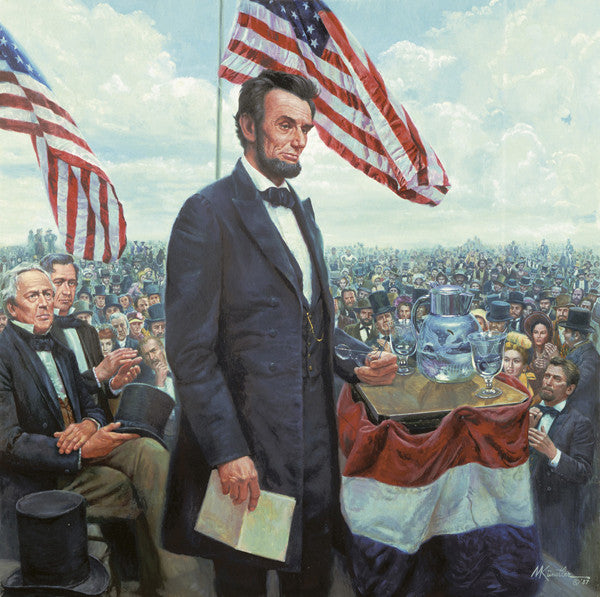
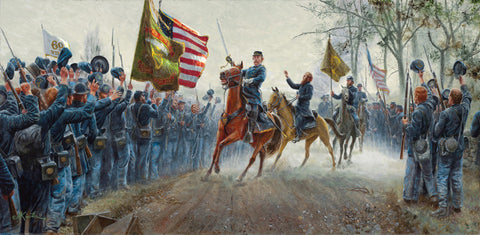
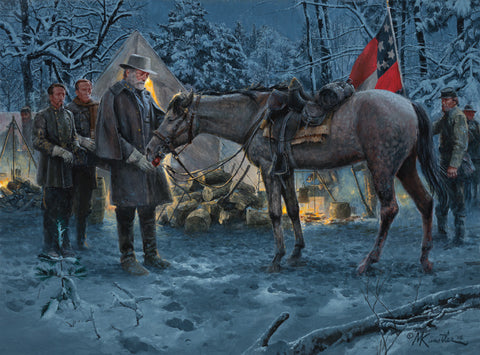
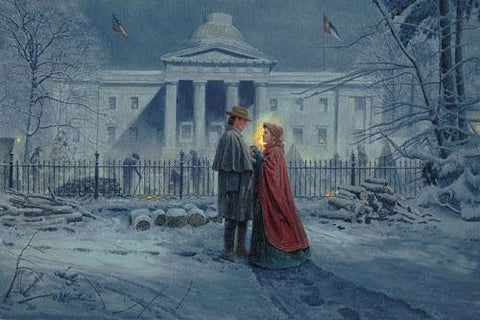
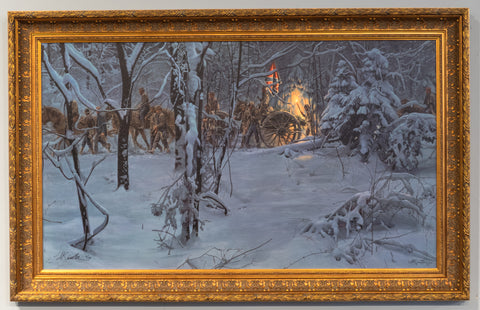
Share this item: